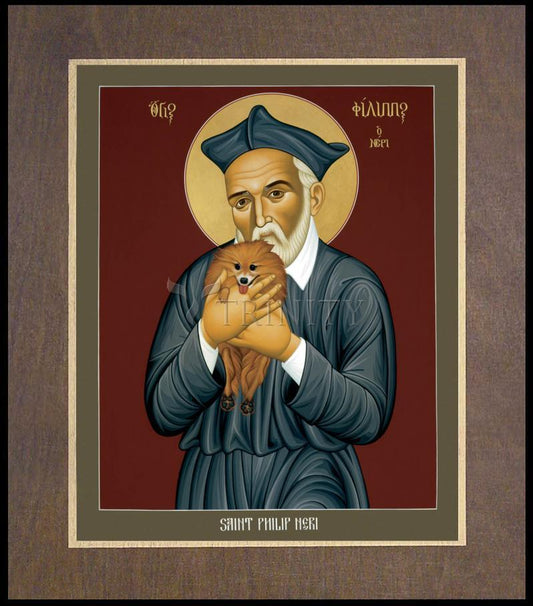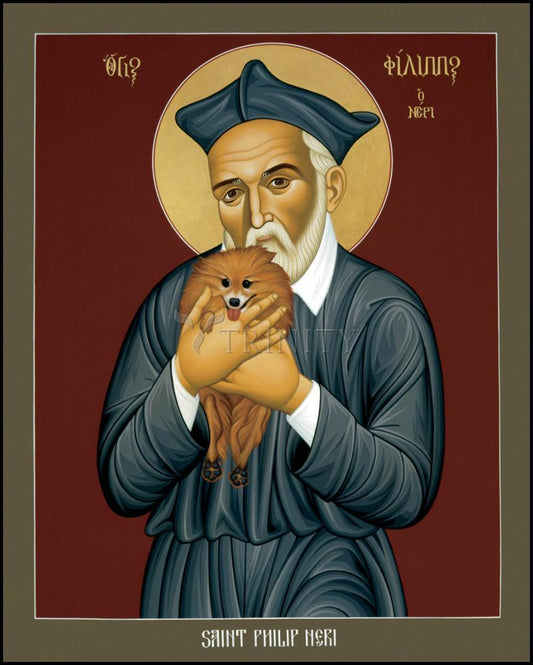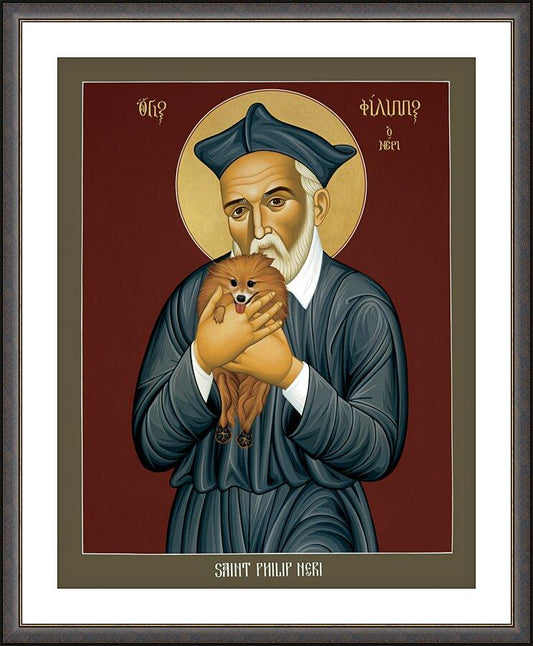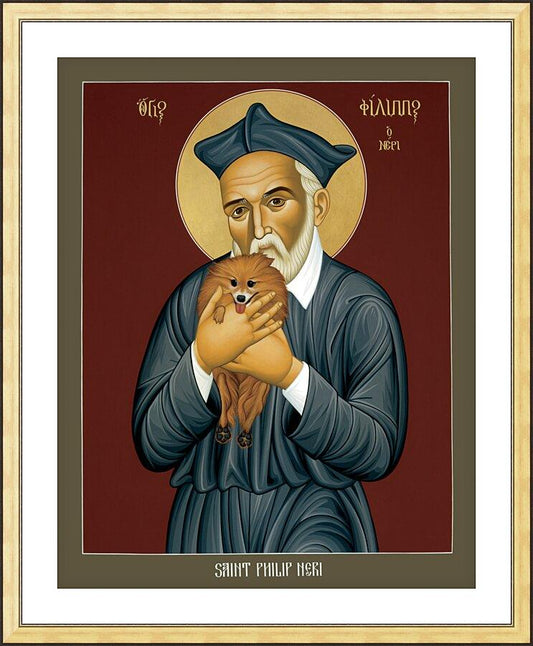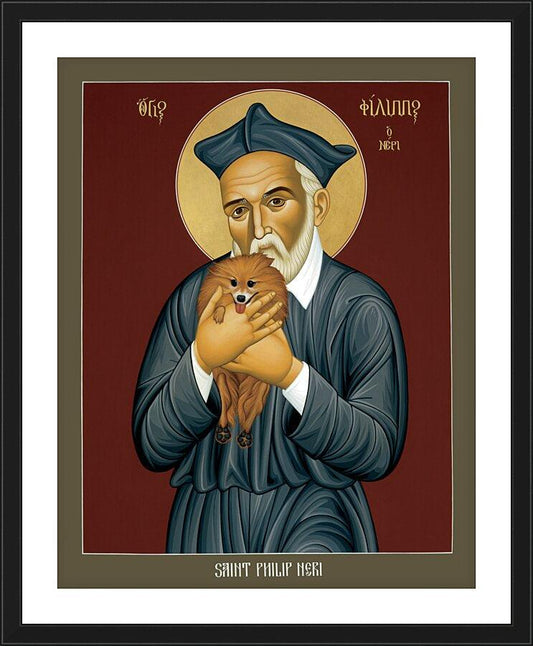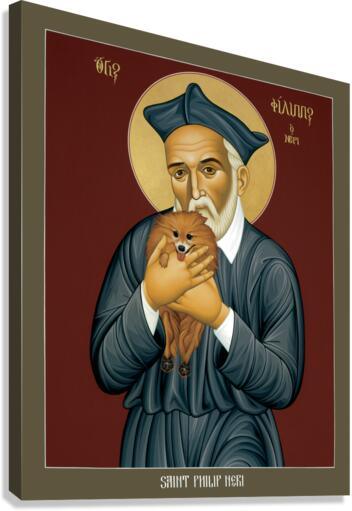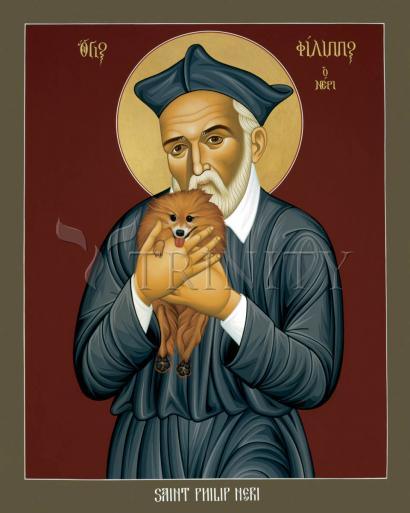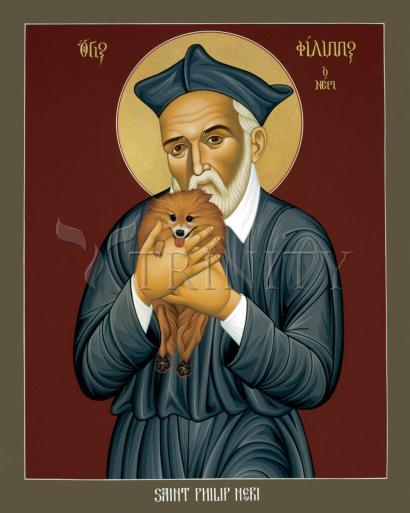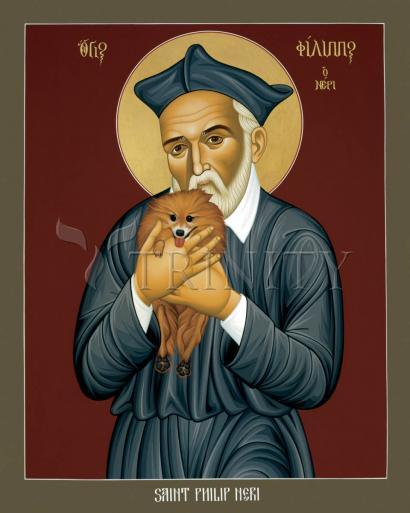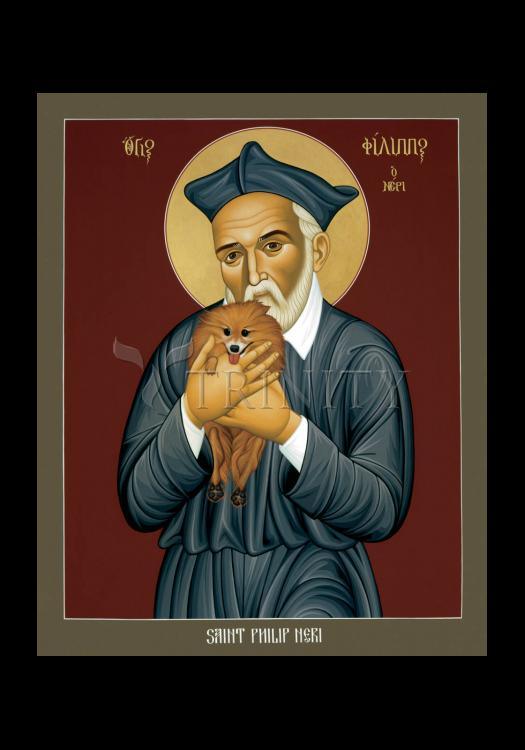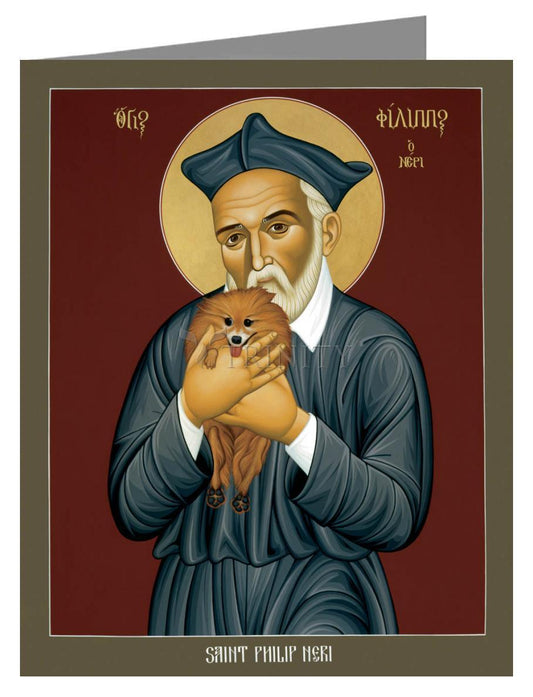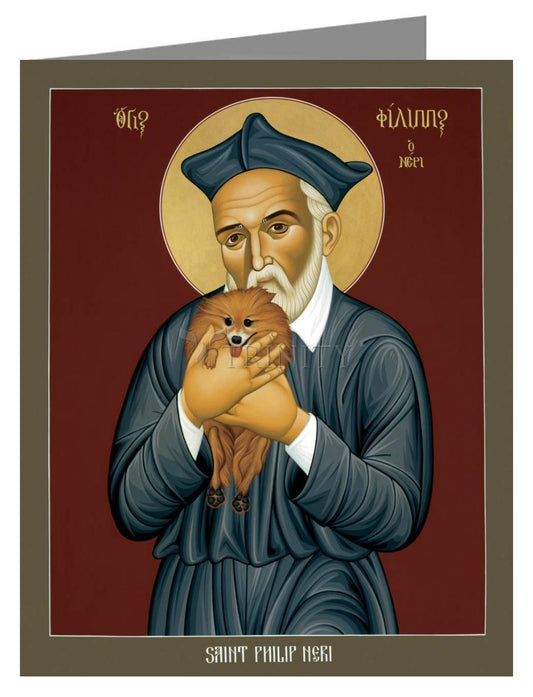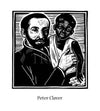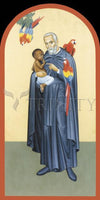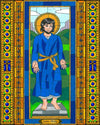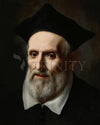Though he was related to Italian nobility, Philip came from a poor family. His father, Francisco Neri, worked as a notary. Philip's brother died in childhood, but his two sisters, Caterina and Elisabetta survived. He was a pius youth, taught humanities by the Dominicans.
He moved to San Germano in 1533 to help some family with their business, and while there would escape to a local Dominican chapel in the mountains. He received word in a vision that he had an apostolate in Rome. Philip cut himself off from his family, and went there.
Befriended by Galeotto Caccia who took Philip in, and paid him to tutor his two sons. He wrote poetry in Latin and Italian. He studied philosophy and theology. When he tired of learning, he sold all his books and gave the money to the poor.
Philip began to visit and care for the sick, and impoverished pilgrims. He founded a society of like-minded folk to do the same. He was a friend of St. Ignatius. A layman, he lived in the city as a hermit. During Easter season of 1544, while praying in the catecomb of San Sebastiano, he received a vision of a globe of fire that entered his chest, and he experienced an ecstasy that physically enlarged his heart.
With Persiano Rose, he founded the Confraternity of the Most Holy Trinity. He began to preach, with many converts. In 1550 he considered retiring to the life of a solitary hermit, but received further visions that told him his mission was in Rome. Later he considered missionary work in India, but further visions convinced him to stay in Rome.
Philip entered the priesthood in 1551. He heard confessions by the hour. He could tell penitents their sins before they confessed, and had the gift of confering visions. He began working with youth, finding safe places for them to play, becoming involved in their lives.
Pope Gregory XIV tried to make him a cardinal, but Philip declined. His popularity was such that he was accused of forming his own sect, but was cleared of this baseless charge. He founded the Congregation of the Oratory, a group of priests dedicated to preaching and teaching, but which suffered from accusations of heresy because of the involvement of laymen as preachers. In later years he was beset by several illnesses, each of which was in turn cured through prayer.
"Cheerfulness strengthens the heart and makes us persevere in a good life. Therefore the servant of God ought always to be in good spirits."
"Saint Philip Neri
Born: July 22, 1515 at Florence, Italy
Died: May 26, 1595
Beatified: 1615 by Pope Paul V



